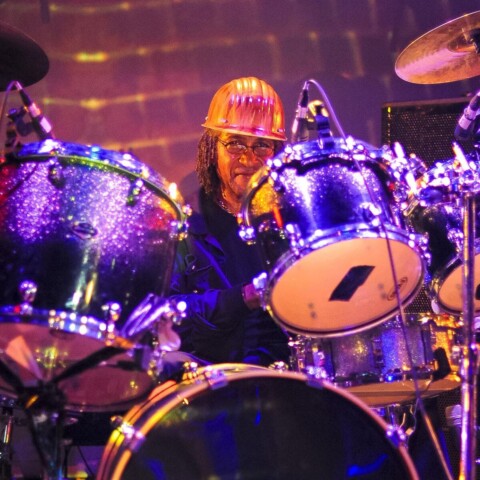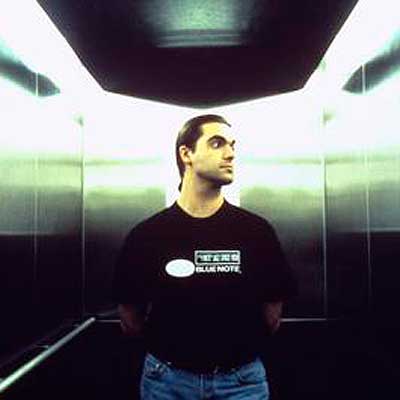IRADELPHIC HAS BEEN out for months, but chances are you haven’t heard it, or even heard of Clark, and that’s why I’m tapping out this review. 
Of all the idiosyncratic electronic artists on Warp’s roster, Clark has served the most time on my stereo over the past decade, partly because his production/engineering skills are top-notch, and partly because he refuses to play slave to genre, while somehow keeping his musical character intact.
Over the relatively brief arc of his career, he’s turned out albums that bathe in the same kind of analogue bubblebath as the electronic mentor Richard D. James, shifted his attention to microscopic textural experiments, and gone head-first into his own grimy version of electronic ‘dance’ music (whatever that means), amongst other compelling diversions. 
On Iradelphic (whatever that means) it sounds like the poor boy’s gone and gotten his heart broken [my subjection only], and so there’s a whole new type of emotional gravity and a few actual songs with actual singing, as well as some ‘real’ instruments like guitars.
In fact, it’s the gorgeous baroque-inflected guitar that opens the album, and features spasmodically throughout, that helps to immerse it in a liquid pool of melancholy that’s pretty pervasive.
As always on a Clark album, the sound picture is amazing: on ‘Henderson Wrench’, it’s widescreen, cavernous, hi-res and flinging itself into the seeming eternity of space, with pronounced stereo imaging and an almost avant-folk feel.
‘Com Touch’ will be familiar to fans, because it uses familiar synthesiser arpeggiations; but the big difference here is the absence of his usual rattling drum programs, which allows the composition to explore territory not that far removed the intimate progressive jazz/rock of 1970s groups like Hatfield & the North.
Synth fans will love the squelching, farty, bulbous, squiggly sounds Clark flings out of his console on ‘Tooth Moves’.
The singing, however, is more difficult to process. On ‘Open’ and ‘Secret’ he employs Martina Topley Bird (who some might remember from Tricky’s mighty debut, Maxinquaye). On the former, she’s given only one line to repeat, ad nauseum. The latter is much better, with its mutant Latinisms, and the cool middle section, which evolves the piece quickly past any trip-hop connotations the first part may conjure up. 
On Iradelphic, Clark has put the sounds through what sounds like a battery of processing – some are aged artificially, others are intentionally distorted, and these effects are at their height on ‘Ghosted’, in which surface noise, field recordings, “haunted dancehall” piano and guitar and other sounds all shimmer into an, um, ghostly netherworld. Some reviewers have slammed Clark for having appropriated the ‘hypnagogic’ traits that have been in vogue these past few years, along with the ‘nostalgia’ of Boards Of Canada. To which I respond: that’s just lazy reviewer shit.
The three-part ‘The Pining’ starts out with lonely acoustic guitar, but soon rocks out with a more typically Clark set of electronic tools. The second part jettisons the distressed and “aged” elements for a sparking clean (and huge) soundstage, while the third part is back to keyboard appegitations that make it apparent he’s been cocking an ear or two towards Philip Glass.
While Iradelphic is likely to be yet another Clark album that simply sinks without trace, to his select group of admirers it’s further proof that this skilled electronic composer is determined to keep on following his own muse, which is anything but predictable. GARY STEEL
Music = 4/5
Sound = 4/5

Clark – Iradelphic (Warp/Border) CD REVIEW
Latest from Music

From The Archives: Sly Dunbar talks
That time GARY STEEL chatted with drummer Sly Dunbar of the famed Jamaican rhythm section, Sly & Robbie. First, the story. After, the unexpurgated

World’s Worst Records: Cattle Decapitation’s To Serve Man
MATT KELLY actually likes Cattle Decapitation but this early blunder is especially bad in a multitude of ways and is endlessly deserving of derision.

Let there be drums!
Six diverse percussion compositions performed by virtuosic musician Justin DeHart challenge common notions about the most primal of instruments.

World’s Worst Records: Alison Gold’s Shush Up
Gold's follow-up to 'Chinese Food' was so regrettable and tasteless that she had to change her name, writes our dean of tack, MATT KELLY.

Heilung – A cyberpunk reimagining of ancient culture
Hardened atheist GARY STEEL attends bizarre show by German/Nordic group Heilung and has “spiritual” experience.









